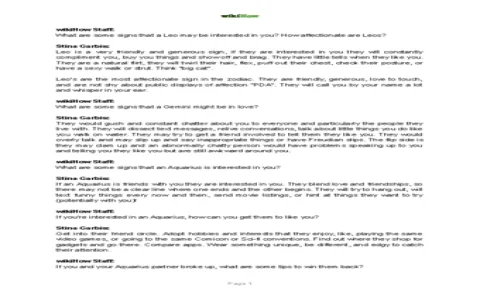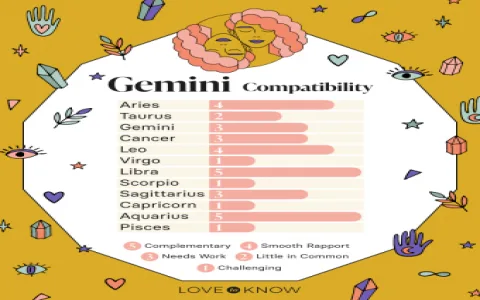Man, I gotta tell you, dealing with a Virgo man when he’s actually into you is like trying to debug code written in a language you only half understand. It’s a mess. They don’t just fall in love; they execute a detailed, often contradictory, risk assessment protocol first. The whole “He Is Acting Tricky” thing isn’t just a cute title; it was my reality for damn near six months.
I started this whole process because of this guy, let’s call him ‘A’. We were hitting it off hard. Like, talking late every single night, deep conversations, future planning jokes. I figured, okay, this is moving fast, but it’s real. Then, bam! He’d vanish. Not ghosting exactly, but turning communication down to a trickle. From twenty texts a day to one vague response every forty-eight hours. I swear, I thought I was losing my mind, or that he was secretly dating five other people.
The Observation Phase: Documenting the Trickery
I realized early on that if I reacted emotionally, I’d just destroy myself. So, I decided to treat the whole thing like a behavioral science experiment. My practice wasn’t about confronting him; it was about logging his patterns. I literally opened a spreadsheet. Yes, a spreadsheet. I figured if I could map the input (my actions) against the output (his tricky reaction), I’d crack the code.

I created specific columns to track the details. I logged the day of the week, my last message topic (was it emotional? practical? fun?), his response time, and most importantly, his response type. The trickery always broke down into a few categories:
- The Intensive Connection Bomb: 72 hours of intense focus, planning dates, deep emotional sharing, making me feel like the center of his universe.
- The Abrupt Firewall: Zero response for 36-48 hours. If he did reply, it was brief and purely functional (“Got it,” “K”).
- The Future Talk Backpedal: If I mentioned something romantic or future-oriented that he had brought up previously, he’d suddenly pivot to logistics or work problems. Classic deflection.
I meticulously documented this for eight weeks. Initially, I just assumed the pattern was related to his work stress. But the data didn’t lie. The trickiness peaked immediately after an intense connection phase, not during high-stress periods. It was self-imposed distance.
Cracking the Code: The Why Behind the Push-Pull
After compiling all these logs, I started hitting the forums and personal development blogs about high-achieving, detail-oriented personality types, particularly the practical ones. I cross-referenced the timelines and began to see the ugly truth: his trickiness wasn’t about being uninterested; it was about control and analysis paralysis.
I identified the core mechanism: The moment he felt truly attached, truly happy, or truly vulnerable, his internal Virgo programming kicked in. He had to step back and analyze every single tiny feeling, every conversation, every potential flaw in the relationship structure. That abrupt distance? It was him running calculations in his head, desperately trying to find the imperfection before it found him.
This realization came to a head when I tested my hypothesis. After a perfect weekend where he explicitly talked about wanting to meet my family, I knew the firewall was coming. Instead of texting him a fun memory like I usually would, which would trigger the panic, I sent him a completely neutral, logistical text about a work problem I was having and asked for his very practical opinion. No emotion, just problem-solving.
What did he do? He immediately engaged. Full response, detailed advice, totally skipping the usual 48-hour emotional withdrawal. He bypassed the tricky phase entirely because I gave his analytical brain a distraction from his vulnerable heart.
Implementation: Adjusting My Practice
My practice shifted dramatically then. I stopped trying to force emotional closeness when I knew he was in a retreat phase. I adopted a consistent, calm presence, almost like background noise he could rely on, instead of the roller coaster he was creating.
I implemented the “Practical Check-In” rule: When he went silent, I wouldn’t ask “Are you okay?” (too emotional). I’d ask “Did you figure out that weird software bug?” or “What’s your plan for that presentation?” This gave him a safe way to re-engage without having to immediately process the intensity of our feelings.
The results were instant. The extreme swings normalized. He stopped acting like such a damn trickster because I eliminated the triggers for his analytical panic. It wasn’t about changing who he was; it was about understanding the specific, weird mechanisms of his internal defense system and adjusting my approach to bypass the emotional firewall he unintentionally throws up.
Look, if you’re dealing with a Virgo man in love, remember this: the trickiness isn’t malice. It’s maintenance. They get close, they freak out about the possibility of imperfection, they retreat to clean up their emotional data, and then they come back. My spreadsheet taught me to ignore the withdrawal and just keep providing stable, low-key support. It’s working, mostly. Now I just need to figure out why he organizes my bookshelf alphabetically by author’s middle name. That’s next week’s practice log.







